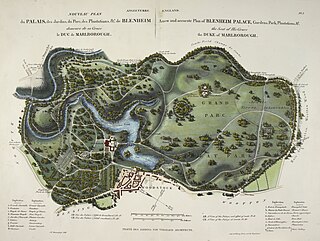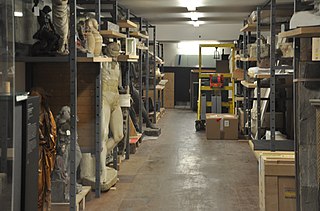Related Research Articles

A museum is an institution that cares for (conserves) a collection of artifacts and other objects of artistic, cultural, historical, or scientific importance. Many public museums make these items available for public viewing through exhibits that may be permanent or temporary. The largest museums are located in major cities throughout the world, while thousands of local museums exist in smaller cities, towns, and rural areas. Museums have varying aims, ranging from serving researchers and specialists to serving the general public. The goal of serving researchers is increasingly shifting to serving the general public.

The Field Museum of Natural History (FMNH), also known as The Field Museum, is a natural history museum in Chicago, Illinois, and is one of the largest such museums in the world. The museum maintains its status as a premier natural-history museum through the size and quality of its educational and scientific programs, as well as due to its extensive scientific-specimen and artifact collections. The diverse, high-quality permanent exhibitions, which attract up to two million visitors annually, range from the earliest fossils to past and current cultures from around the world to interactive programming demonstrating today's urgent conservation needs. The museum is named in honor of its first major benefactor, the department-store magnate Marshall Field. The museum and its collections originated from the 1893 World’s Columbian Exposition and the artifacts displayed at the fair.

Historic New England, previously known as the Society for the Preservation of New England Antiquities (SPNEA), is a charitable, non-profit, historic preservation organization headquartered in Boston, Massachusetts. It is focused on New England and is the oldest and largest regional preservation organization in the United States. Historic New England owns and operates historic site museums and study properties throughout all of the New England states except Vermont, and serves more than 198,000 visitors and program participants each year. Approximately 48,000 visitors participate in school and youth programs focused on New England heritage.

The Wagner Free Institute of Science is a natural history museum at 1700 West Montgomery Avenue in northern Philadelphia, Pennsylvania, United States. Founded in 1855, it is a rare surviving example of a Victorian era scientific society, with a museum, research center, library, and educational facilities. Its buildings, developed between 1859 and 1901, present the collections of founder William Wagner in the style of the period, and have been designated a National Historic Landmark for their architecture and state of preservation.

Cultural heritage is the legacy of physical artifacts and intangible attributes of a group or society that is inherited from past generations. Not all legacies of past generations are "heritage", rather heritage is a product of selection by society.

Historic garden conservation is a specialised type of historic preservation and conservation or restoration concerned with historical and landmark gardens and designed landscapes.

The California Native Plant Society (CNPS) is a California environmental non-profit organization that seeks to increase understanding of California's native flora and to preserve it for future generations. The mission of CNPS is to conserve California native plants and their natural habitats, and increase understanding, appreciation, and horticultural use of native plants throughout the entire state and California Floristic Province.

The Missouri Folklore Society was organized December 15, 1906, "to encourage the collection, preservation and study of folklore in the widest sense, including customs, institutions, beliefs, signs, legends, language, literature, musical arts, and folk arts and crafts of all ethnic groups throughout the State of Missouri."

In the United States government, the Office of Administration is an entity within the Executive Office of the President tasked with overseeing the general administration of the entire Executive Office.

The Indiana Historical Society (IHS) is one of the United States' oldest and largest historical societies and describes itself as "Indiana's Storyteller". Housed within the Eugene and Marilyn Glick Indiana History Center, it is located at 450 West Ohio Street in Indianapolis, Indiana, in The Canal and White River State Park Cultural District, with neighbors such as the Indiana State Museum and the Eiteljorg Museum of American Indian and Western Art. The Indiana Historical Society is the oldest state historical society west of the Allegheny Mountains.

A historical society is an organization dedicated to preserving, collecting, researching, and interpreting historical information or items. Originally, these societies were created as a way to help future generations understand their heritage.
The Historical Society of the Episcopal Church (HSEC), formerly the Church Historical Society, was founded in Philadelphia in 1910. This voluntary society includes scholars, writers, teachers, ministers as well as others interested in its goals and objectives. It publishes the quarterly academic journal Anglican & Episcopal History and co-publishes a newsletter, The Historiographer with the National Episcopal Historians and Archivists (NEHA).
The Association for Library Collections and Technical Services (ALCTS) is a division of the American Library Association (ALA) dedicated to the areas of technical services, collection management and development, and preservation and reformatting. ALCTS membership represents over forty countries, and it comprises librarians, library support staff, students of library and information science, and commercial vendors whose professional interests lie within these areas of practice. ALCTS meets the needs of its members through educational programming, publications, professional development opportunities and information exchange. ALCTS also promotes and has significant input into the development of standards and best practices, including NISO standards and cataloging standards such as RDA.

Grand Canyon Conservancy (GCC), formerly known as Grand Canyon Association (GCA), is the National Park Service's official non-profit partner of Grand Canyon National Park, raising private funds, operating retail shops within the park, and providing premier guided educational programs about the natural and cultural history of the region. Supporters fund projects including trails and historic building preservation, educational programs for the public, and the protection of wildlife and their natural habitat.

The National Episcopal Historians and Archivists (NEHA) is an organization that encourages every congregation, diocese, and organization in the Episcopal Church in the United States of America to collect, preserve and organize its records and share its history.

The Presbyterian Historical Society (PHS) is the oldest continuous denominational historical society in the United States. Its mission is to collect, preserve and share the history of the American Presbyterian and Reformed tradition with the church and broader community. It is a department of the Office of the General Assembly of the Presbyterian Church (U.S.A.).
Heritage Preservation is an American non-profit organization founded in 1973. Its mission is to preserve the nation’s heritage for future generations through innovative leadership, education, and programs.

A collection manager ensures the proper care and preservation of objects within cultural institutions such as museums, libraries, and archives. Collection managers, along with registrars, curators, and conservators, play an important role in collections care. Collection Managers and Registrars are two distinct collection roles that are often combined into one within small to mid-size cultural institutions. Collection Managers can be found in large museums and those with a history and natural history focus whose diverse collections require experienced assessment to properly sort, catalog, and store artifacts. A collection manager may oversee the registrar, archivist, curator, photographer, or other collection professionals, and may assume the responsibilities of these roles in their absence within an organization.

A museum registrar is responsible for implementing policies and procedures that relate to caring for collections of cultural institutions like archives, libraries, and museums. These policies are found in the museum's collections policy, the guiding tenet of the museum explaining why the institution is in operation, dictating the museum's professional standards regarding the objects left in its care. Registrars focus on sections that include acquisitions, loans, exhibitions, deaccessions, storage, packing and shipping, security of objects in transit, insurance policies, and risk management.